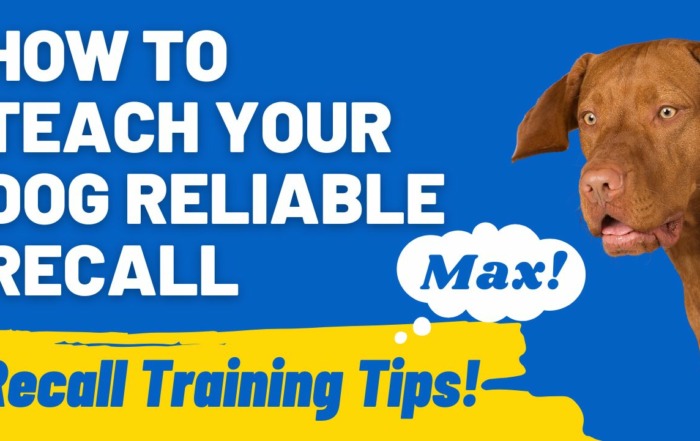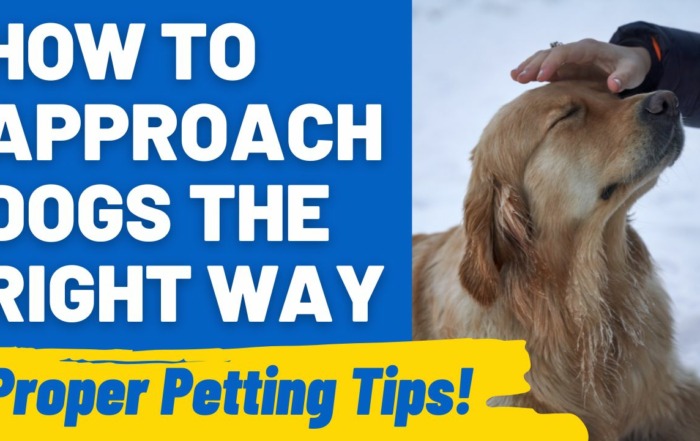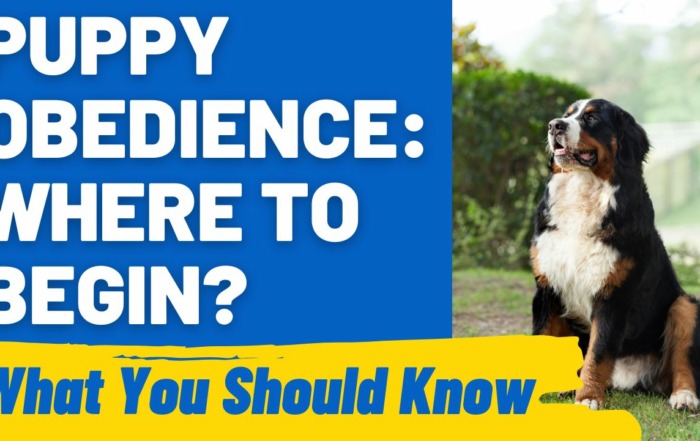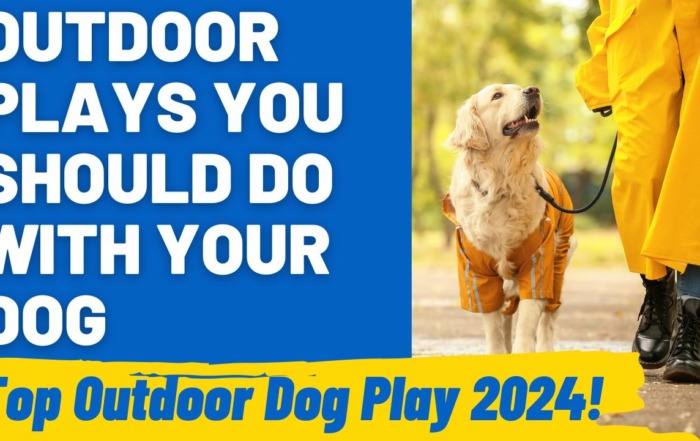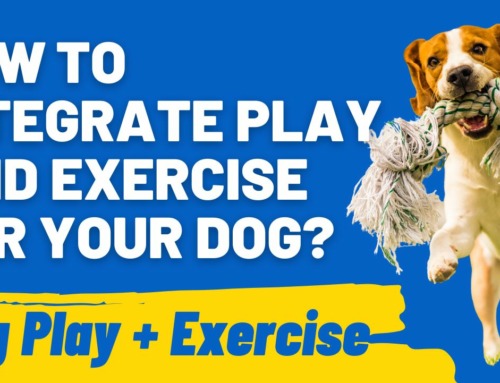In a world surrounded by dog lovers, new puppies are supposed to be cute, cuddle bugs that spark nothing but joy in our lives. But what do we do when that’s not the case, and we’re actually scared of our puppy?
A new puppy is a big change in a person’s life, and it can be suddenly overwhelming. We may even feel helpless and conflicted. Yet it happens. A puppy might bite you and leave you feeling scared.
In fact, people often find themselves in situations where they feel nervous around their puppy or even afraid. This usually happens for new or inexperienced owners, especially of a large breed they feel like they have no control over.
If this sounds like you, how do you stop being afraid of your puppy and take control?
How do I stop being afraid of my puppy?
Ending fear or anxiety over your puppy’s behavior does not happen overnight, but it can be overcome like any fear.
The first step is addressing your nervousness regarding your dog and establishing if this is something you can realistically handle.
The next step is to begin investing in knowledge. The more you understand your dog’s behavior, the more you will understand how to control it.
You may also need a professional to show the basics.
After that, you can begin the process of dealing with problem behaviors head-on. Remember, letting fear cause you to avoid the issue might create a bigger one down the road.
But, first things first, we need to take a step back.

Re-evaluate: Why are you afraid of your puppy?
To stop being scared of your puppy, you need to first address what is actually making you afraid. Common reasons for being nervous or fearful around your dog include:
- Your puppy has started playing rough. They’re nipping, biting, and tugging on you, and your attempts to make them stop aren’t working. Your attempts may even be making the behavior worse.
- Your puppy has started growling or snapping at you, your children, or visitors.
- Your puppy has begun showing signs of resource guarding, such as growling or even biting when it has high-value items like food or a chew toy.
- You have had a bad experience with dogs in the past, so even regular puppy playing can seem aggressive and scary.
- Your puppy is hyperactive and you are beginning to feel like you can’t control it.
- You may have a puppy you associate with aggression, such as a Rottweiler or Pit Bull. You may be scared that its current behavior will mean that it will grow up to be dangerous.
Do you regret getting a puppy? Read our post on puppy regret. You might also like to know how long it takes for a puppy to bond with their owner.
Establish if your fears are valid before acting
Once you have identified the exact cause of your concerns, you need to step back and evaluate how legitimate your fears really are. After all, they may well be a genuine cause for concern. To do this, you may need to get more than one opinion from a certified dog trainer or behaviorist.
The second opinion is to objectively identify how dangerous your dog really is and if this is the best dog for you moving forward. A good trainer will differentiate between a puppy that is merely play nipping and just needs some training and boundaries or a young dog that displays dominant-aggressive behavior best for an experienced and trained owner.
In the latter case, you may need to make a difficult decision, especially if you have children in the home. For instance, if you have a powerful breed such as a Boerboel or Cane Corsa, the dog may simply become too much for a fearful and inexperienced owner. These powerful and dominant breeds need kind but confident leadership, training, and boundaries.
To be clear, not all of these dogs will actually turn aggressive when they have an owner that is scared of them. Still, it only takes one to end in a tragedy for everybody involved. In these cases, looking for somebody who can better meet the puppy’s needs might be heartbreaking but necessary.
On the other hand—and much more likely—your puppy might be displaying perfectly normal behavior for its age. Play biting, nipping, and even growling are common behaviors among puppies. Even resource guarding is quite usual, and luckily, with patience and persistence, it is a problem you can fix.
Your puppy may also require more exercise and mental stimulation than what they are currently getting to help them calm down. Suppose the behavior that makes you fearful falls under the category of normal puppy behaviors. In that case, you can move on to conquering your fear and taking control of the situation.
Are you interested in reading this embarrassing subject, Why Do Dogs Smell My Crotch? Explained.
Baby steps: work on one problem at a time
All puppies, literally and figuratively, have teething problems. Whether it’s a Vizsla or Border Collie with biting attacks, a Corgi that won’t let anybody near its food bowl, you can forgive yourself for feeling overwhelmed. In fact, many new owners are overwhelmed; it’s natural to feel this way so don’t be hard on yourself.
But if you have developed a fear of your pup, you will need to work on your own anxiety and your puppy’s behavior simultaneously. This means slowing things down and working on one problem at a time.
As you gain control over one issue, this should give you the confidence to deal with the next. For instance, if your primary problem is that your puppy bit you and made you scared, then focus only on teaching bite inhibition for now. Secondary issues can come later.
Tips to reduce fear when dealing with biting puppy
-
Start with calming exercises for yourself. Approach any training with a relaxed and positive attitude.
-
Keep sessions short and always end on a win, no matter how small.
-
Lower your expectations. Gaining control of your dog and your own nerves does not happen overnight.
-
Do not give up. The more you avoid the problem, the more you will avoid your puppy. The more you avoid your puppy, the more it will act out to get your attention, creating a vicious cycle.
-
Keep your voice level and steady and use it sparingly. Suppose you are fearful and keep repeating “stop” or “no” in a high-pitched voice. In that case, your puppy might mistake this for excitement and become more excited themselves. They may also associate repeated commands with the wrong action, such as jumping on you rather than sitting.
-
If your puppy is biting, try wearing heavily padded old clothes, shoes, and gloves in the house so that if you get taken by surprise, your fear isn’t made worse by the pain of a nip.
-
Always exercise your dog first. If your puppy is hyperactive, it won’t want to listen so long as it has too much pent-up energy. Make sure this is controlled exercise and your dog is not yanking you everywhere you go.
-
If you have trouble commanding respect on the leash, ask for a professional to help while you are gaining confidence. See video below…
-
Learn to ignore bad behavior, or redirect with a high-value item.
-
Use positive reinforcement to reward good behavior and focus on that instead. It’s best to carry a treat bag or your pup’s favorite toys around with you and be ready to reward for anything good you see. This way, you are constantly shaping good behavior.
Give yourself a break from your puppy.
It takes time to deal with one’s own emotions, just like it takes time to gain control of a wayward or overexcited puppy. While you should never start avoiding your dog, you do need time away from them to regroup and center yourself. This can come in the form of:
- Investing in doggy daycare that can take your puppy in for a few days a week.
- Crate training with a consistent routine for when your puppy should be in a crate with a good toy or a chew, or just to take a nap.
- Using a baby gate or pen to secure your puppy in a safe part of the house, also with something to keep it busy.
- Place or mat training when you feel confident enough to move to that stage.
- Consider enrolling your puppy into a training program where your puppy will live at the training center for a period of time.
A final word
Being afraid of your puppy is not as uncommon as you might think. The important thing is to take a deep breath and assess whether the problem is something you can overcome. Never be afraid to ask the advice of a professional.
Once committed to overcoming your fear and addressing the problems in your puppy’s behavior, be patient with yourself and your dog. Take time to learn, and set small, achievable goals for both you and your puppy to gain trust in one another.
Recall Training Secrets: How to Teach Your Dog Reliable Recall
Teaching a dog recall is not just a basic obedience skill; it's a vital aspect of ensuring the safety and freedom of your beloved pet. Picture this: your dog is playfully chasing after a squirrel [...]
The Joy of Petting: How to Approach Dogs the Right Way
"Can I pet that dog?" is often the first thought that pops into our minds when we see a furry friend wagging its tail. The joy of petting a dog is unmatched, offering both the [...]
Puppy Obedience: Where to Begin? An Introductory Guide
Puppy obedience is more than just teaching commands. It's about nurturing a relationship based on mutual respect and understanding. It lays the foundation for a well-behaved adult dog and ensures a harmonious life together. In [...]
Understanding Canine Autism: Do Dogs Experience It?
Have you ever wondered, can dogs have autism? Autism, a complex condition often characterized by social and communication difficulties, is widely recognized in humans. But when it comes to our canine companions, the idea of [...]
How to Integrate Play and Exercise for a Healthier Dog?
Ensuring a healthy and fulfilling life for our dogs involves more than just regular feedings and routine check-ups. Integrating play and exercise into their daily lives plays a crucial role in maintaining their physical and [...]
Outdoor Adventures: How to Make the Most of Outdoor Play with Your Dog?
Engaging in outdoor play with your dog is more than just a fun way to pass the time; it's an essential part of their health and happiness. From frolicking in the local park to embarking [...]


